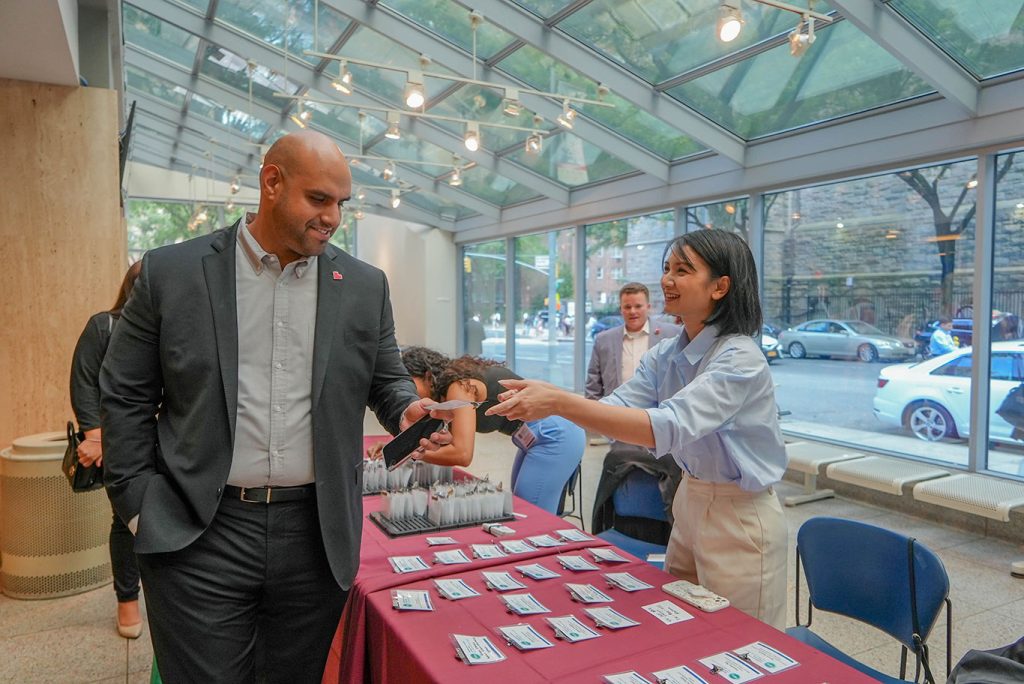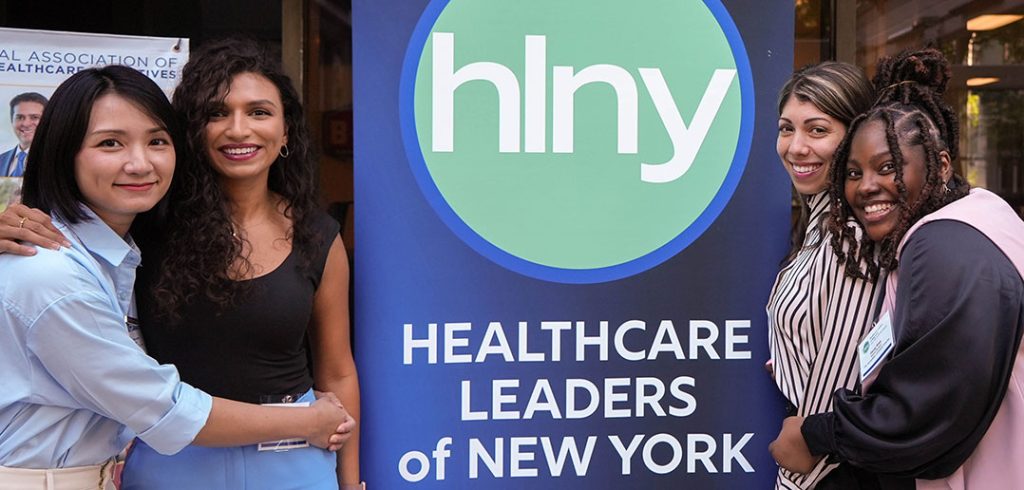This year, all the students in the fifth cohort of Fordham’s master’s degree in health administration program received a valuable connection to that growing field: student membership in the American College of Healthcare Executives (ACHE)
On Aug. 8, the group co-hosted, along with the National Association of Health Services Executives (NAHSE), the “3rd Annual Better Together: Celebrating Diversity, Equity & Inclusion” event at the Lincoln Center campus. Several members of the cohort were invited to attend.
Shifting from a Clinical to an Administrative Focus
One of them was Su Su Oo, a native of Myanmar who left her home last year to escape political repression and violence engulfing the country.
Oo had graduated from medical school there and worked for four and half years at a hospital before pursuing a postgraduate degree in public health in New Zealand. Before settling in Dyker Heights, Brooklyn, she worked as a field support coordinator for the Myanmar Anti-Narcotics Association.
She soon found herself more interested in the administrative side of health care than the clinical aspects of the field. So she enrolled in Fordham’s program, which is offered through the Graduate School of Arts and Sciences.
“The courses are very comprehensive and cover most everything you would need to understand the health administrative field. I loved learning about things like the social determinants of health and the factors that affect the quality of health care overall,” she said.
“My communication skills and negotiation skills have also improved a lot through the group projects we’ve done.”

Developing Skills Beyond One’s Comfort Zone
Jasmine Morales, a native of Co-op City in the Bronx who currently works as a radiology billing associate at Memorial Sloan Kettering Cancer Center, earned a certified nurse assistant (CNA) license when she was in high school. Nursing was not ultimately in the cards for her, but Morales stuck with the field.
“In my mind, I said, ‘Even if I can’t be a nurse, I can still help people in other ways, as long as I’m still in health care,” she said.
Her capstone project, on opioid addiction in the Bronx, opened her eyes to the reality of the healthcare system disparities in the United States.
“Going through this program, you see the whole spectrum of health care. The disparities are not just in New York either; it’s global,” she said.
She also feels more confident speaking in public now, having successfully presented her capstone findings to her class. It wasn’t easy, though; at the time, she said she was on the verge of tears.
“I had to learn and keep going moving forward, and part of that is getting you out of your comfort zone,” she said.
“As a leader, at some point in your career, you’re gonna have to talk in front of an audience.”
Preparing Graduates for Current and Future Challenges
Caroline Pogge, Dr.P.H., director of the program, said the goal is to develop leaders who will be prepared to manage both current issues in health care as well as future ones, such as the COVID-19 pandemic and the continuous reverberations of the Affordable Care Act (known as Obamacare).
Past graduates of the program, which draws on experts from the Gabelli School of Business, the Graduate School of Social Service, the School of Law, and the Graduate School of Arts and Sciences. have included a medical review officer at Con Edison and a care coordinator at the Memorial Sloan Kettering Cancer Center.
“We want students to be able to say, ‘Hey, I’ve got a situation; I know how to dig into a problem regardless of what that problem is,’” she said.


